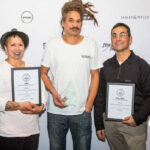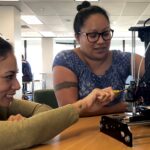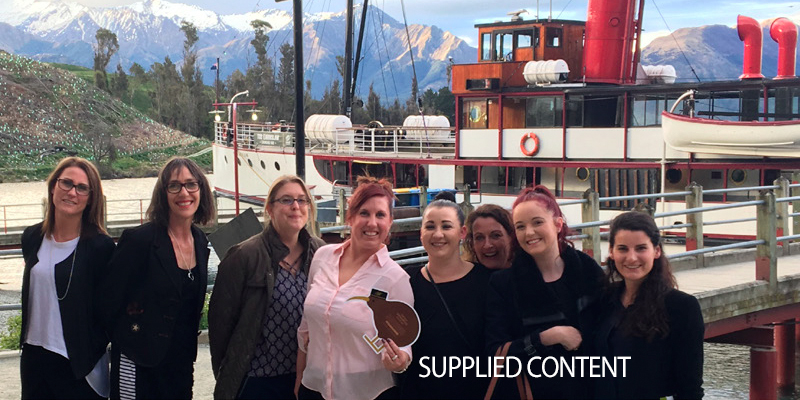Who’s leading the emergence of New Zealand’s circular economy?
Andy Kenworthy takes a look at some of the finalists in this year’s NZI Sustainable Business Network Awards Going Circular Award. Is this the way of the future? It’s early […]
Andy Kenworthy takes a look at some of the finalists in this year’s NZI Sustainable Business Network Awards Going Circular Award. Is this the way of the future?
It’s early days in New Zealand’s transition to a circular economy. This is an economy in which the lifecycles of materials are maximised. Their use is optimised. At the end of life all materials are reutilised. It’s one where waste no longer exists. Instead of degrading the natural world, our industrial processes would restore it.
Taken to its logical conclusion the circular economy could be the most radical change to our way of life since the industrial revolution. This is not about how to ‘sustain’ the current way of doing things. This is about completely rewiring it in order to achieve the sustainability required to keep complex industrialised systems running.
There’s a huge amount of interest in New Zealand right now. New Zealand’s government is keen. The Ministry for the Environment is promoting the circular economy as a way to tackle waste and pollution. When the NZI Sustainable Business Network Awards opened the new Going Circular category it got more entries than any other in the competition’s 15-year history.
This year’s entries give us a taste of how New Zealand businesses are expressing and exploring this idea.
Let’s look at some examples.
Did you know that there has been an enormous shift towards disposable utensils in the health sector? Throwing something away and opening a new one is a relatively easy way to ensure sterility in medical equipment. But where does it all go?
Auckland District Health Board generates 3,000 tons of this rubbish each year. Until recently all the non-hazardous stuff went straight to landfill. But now ADHB has partnered with Baxter Healthcare and Johnson & Johnson to recycle PVC fluid bags, aluminium bottles and single-use instruments. In a perfect circular economy world these resources would be cycled back into products of the same value or utility. This is what happens with the estimated 3,000 aluminium gas bottles in this scheme.
But plastics can be harder to find a home for, especially in New Zealand. So the scheme has found a way to use 10,000kg of PVC for playground mats.
Fulton Hogan has found another option for some of its used plastic oil drums. These are being chipped to become ingredients in PlastiPhalt – a roading asphalt now being tested at Christchurch Airport.
Plastics are also the focus of the circular economy efforts of Flight Plastics in Wellington.
The company has invested in the latest European technology to create the country’s first and only PET plastic washplant. This takes PET bottles and containers recycled at kerbside and turns them into new food packaging. The company has already purchased more than 1.8 million kilograms of waste plastic in New Zealand. The plant is capable of processing six to eight million kilograms a year. That’s the equivalent of all the PET currently collected in New Zealand.
The project is a great example of ‘closing a loop’ from product to recycled material and back to the same product.
Product as a service
Alongside this kind of closed loop sustainability, ‘product as a service’ is one part of what the circular economy is about. Why own something and then struggle to get rid of it? Just use it and return it to the manufacturer to reprocess.
Printer companies like Fuji Xerox and Ricoh have worked this way for years. But Fuji Xerox is the first in New Zealand to have its voluntary product stewardship programme accredited by the Ministry for the Environment. This scheme means the company achieves a reuse and recycling rate of over 99.5 percent. The company has designed its machines for disassembly, and gives parts a second life in its ‘eco-machines’.
Just recently it found a way to add recycled toner to a new form of low carbon asphalt.
Bypassing packaging
Another exciting option is for us to design out some of the materials that end up as waste, especially plastic packaging. Ethique does this by producing solid bar alternatives to liquid shampoo, conditioner, deodorant, body lotion and self-tanner. The products are vegan, cruelty free, palm free, and the packaging is all compostable.
These are the kind of products that will find their way into shops like Goodfor.
Goodfor bypasses packaging by encouraging customers to bring and refill their own jars, bottles or containers. The company has opened three stores in Ponsonby, Parnell and Takapuna, and a pop-up store in Mount Eden. The team aims to open three more stores in 2019. It stocks more than 350 bulk wholefood ingredients. They also offer oils, syrups and vinegars on tap, and the full range of ecostore cleaning products.
Even where packaging is still needed, it’s getting a circular economy makeover. Innocent Packaging has been offering certified commercially compostable packaging made from plants since 2013. The company recently teamed up with WeCompost to pilot The Full Package. This is New Zealand’s first city-wide café-based compostables collection system.
So in a circular economy you should be able to have your caffeine on the go without the recycling angst and without having to carry around your own cup.
Reworking waste
One of the most exciting aspects of the emergence of the circular economy is how it inspires business to take ‘waste’ from others and turn it into valuable products.
NZAgbiz diverts waste from Fonterra and other dairy manufacturers. It reworks this into animal nutrition products. Any excess is sold as ingredients for stock feeds, soaps and bio-fuels. SkyCity Auckland has partnered with Fonterra to recycle Anchor lightproof milk bottles from the SkyCafe into packaging for the Puriri soaps and lotions used in the hotels. Then the Puriri bottles are themselves recycled.
Vinnies Wellington has taken a literally ‘handmade’ approach to a similar challenge – turning unusable clothing donations into new products with a team of volunteers, who pick up valuable skills and social connections on the way.
James Griffin leads SBN’s Circular Economy Accelerator. He says the standard of entries in this second year shows the growth in this idea here, leaving the Awards’ judges with a tough job on their hands.
“To hasten the inevitable adoption of a circular economy in New Zealand we need to start to redesign many aspects of the way we work and collaborate,” he says. “We need to go faster, and we neved to go further. But it’s fantastic to see this already beginning to emerge.”
The NZI Sustainable Business Network Awards take place at a gala dinner in Auckland on November 22.
Andy Kenworthy is a writer and communications strategist specialising in global wellbeing. He is the communications and campaigns co-ordinator for the Sustainable Business Network.
www.sustainable.org.nz




